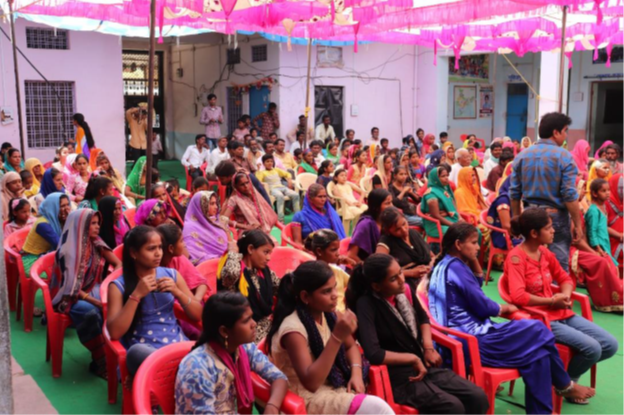London Stone has been supporting No Child Left Behind for the last six years and is asking others in the industry to do what they can to support the initiative too.
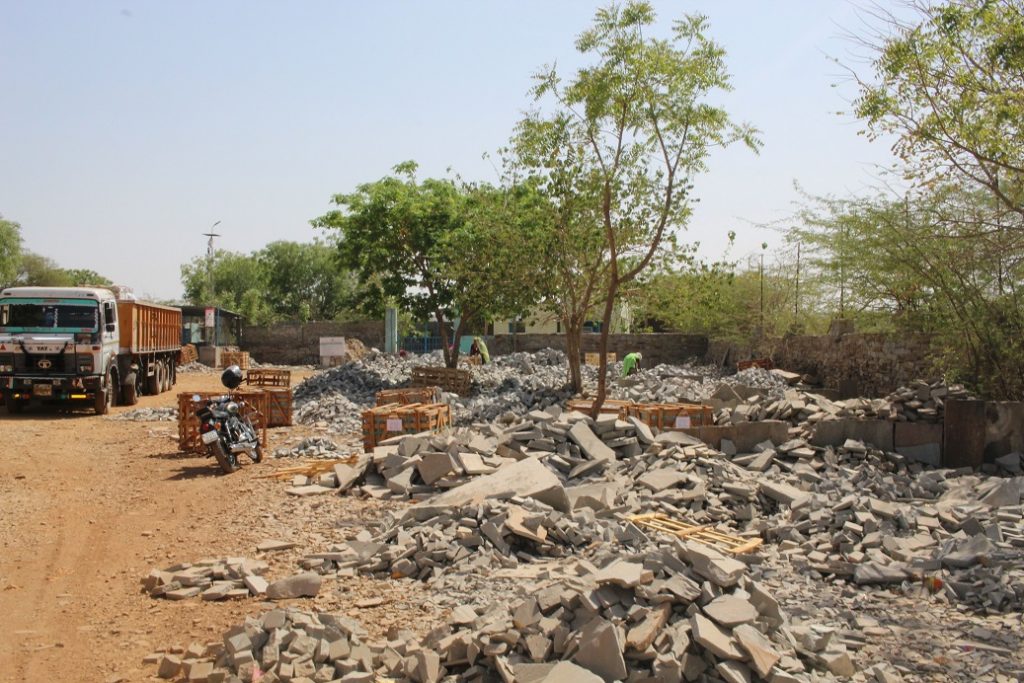
Being an ethical supplier is more than a trademark for London Stone. Since 2015, the supplier has been working with organisation No Child Left Behind to help eradicate child labour in Budhpura, Rajasthan, India, so that the children who live there can enjoy full-time education.
“This region of Rajasthan is the world centre of sandstone sett production, a sector that’s highly susceptible to child labour. There was a growing issue in the supply chain because of this,” says Steven Walley, managing director of London Stone.
The impact of Covid-19
The pandemic has only worsened the problem of child labour in Budhpura; with no school for more than 18 months, and nothing to do, children have drifted back to work. “Children are migrating back towards these work environments, after we’ve spent years trying to move them towards education. We’re effectively starting again,” admits Steven.
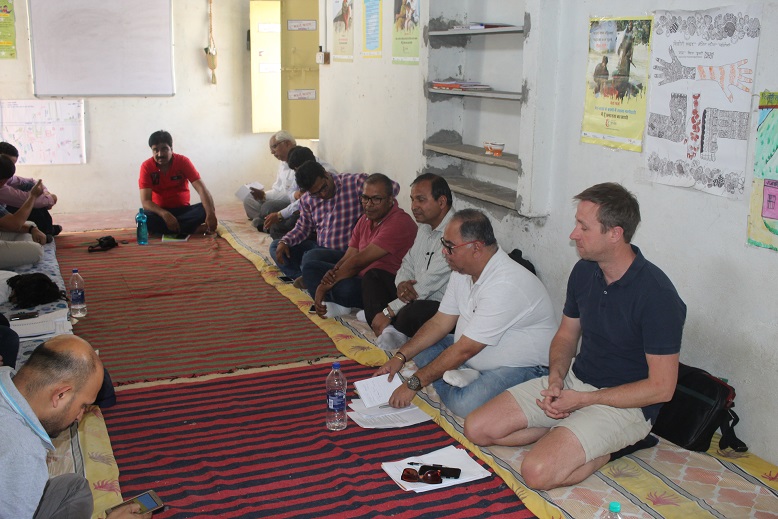
No Child Left Behind tackles a host of other issues in the area, including H&S, gender equality and supporting workers to have their own bank accounts. For London Stone and other European suppliers involved in the No Child Left Behind project, such as stoneasy.com and Beltrami, it’s important that all the people within their supply chains are looked after, and not just with financial donations. “We see our supply chain as an extension of our company,” explains Steve. “It’s important that we value the people within our supply chain as much as we value our customers and our staff within London Stone – we feel responsible as much as we can be for their wellbeing.”
The role of the customer in ethical sourcing
London Stone also encourages its suppliers within India to support the No Child Left Behind project. In many cases, Indian suppliers simply adding their leverage can make a massive difference to how effective a project can be.
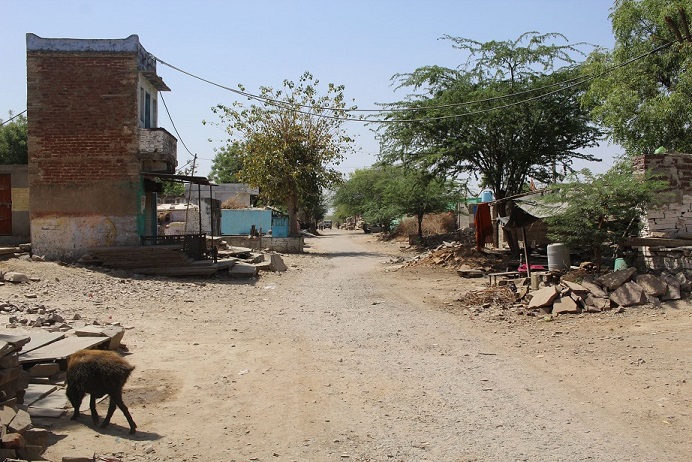
“The more people who apply pressure to make changes, the more chance there is of the changes being made. Invariably, our Indian suppliers are supplying their products to many other suppliers across the world and if all these suppliers came together to put pressure on the Indian suppliers, we would see a lot of these supply-chain issues addressed very quickly. This is more helpful than simply walking away from producers, as some people might suggest. This would worsen problems for workers, as their income would dry up,” says Steve.
“And we can raise awareness of the issue in the UK. We can educate landscapers, garden designers and our retail clients about the importance of understanding what they’re buying and understanding the supply chain. Customers can show their support by buying from companies who take supply-chain ethics seriously.”
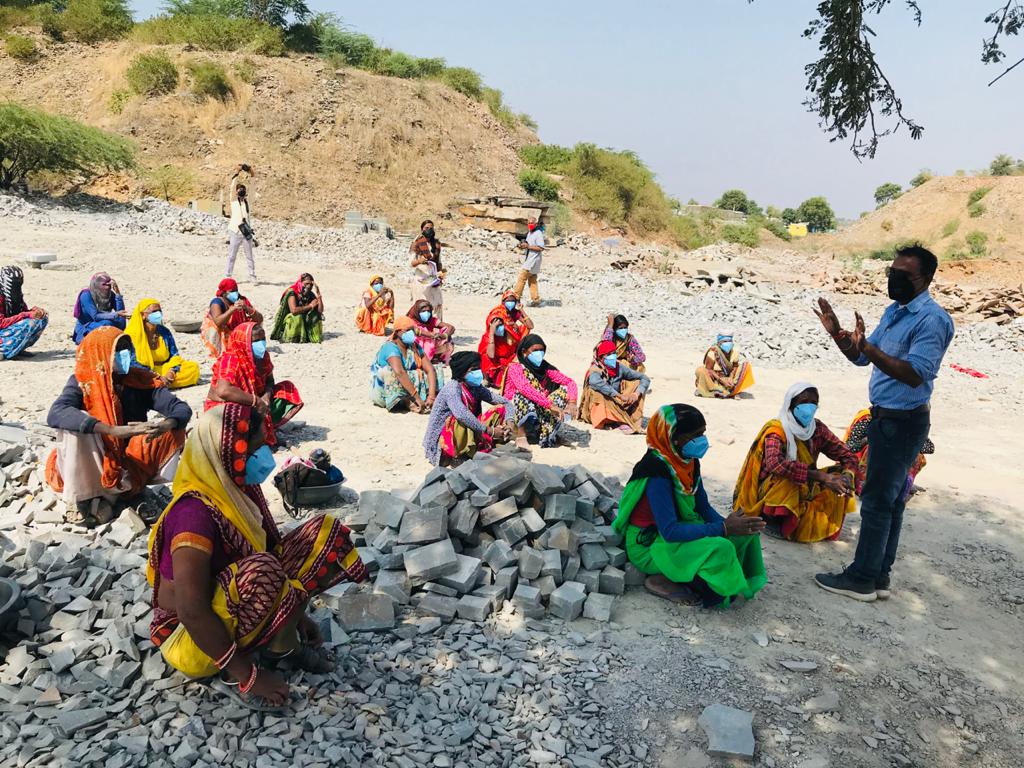
Is certification the answer to ethical sourcing?
Lots of people ask if there are any types of certification for ethical sourcing. “There are, but certification isn’t always the most useful tool,” says Steve. “Certification doesn’t always solve the problem because it’s effectively a badge – just because a badge says your business is compliant today, who is to say that the same business will be compliant tomorrow? In my opinion,” he adds, “trademarks can breed complacency. It’s far better to demonstrate continuous improvements working within a supply chain.”
London Stone takes the opportunity, on its regular buying missions, to visit Manjari who are the NGO running the No Child Left Behind Project in Budhpura. “It’s always inspiring to see how improvements are progressing and to try and gain a deeper understanding of the issues and challenges in Budhpura,” says Steve. “What we really need are more UK suppliers to get involved, so that we can increase our leverage on the supply chain.” He adds, “If there are any UK suppliers who would like to join us in our mission to try and eradicate child labour in Budhpura, we’d love to hear from you.” To find out how to get involved with the work of No Child Left Behind, contact Steve on steven@londonstone.co.uk.
This article first appeared in the October 2021 edition of Pro Landscaper:
For more information about the No Child Left Behind initiative, read Celebrating Budhpura!


/filters:quality(40)/mediadev/media/homepage/price_right_arrow.svg)
/filters:quality(60)/mediadev/media/menu-pics/menu_banner_mobile.png )
/filters:quality(60)/mediadev/media/menu-pics/all-porcelain.jpg )
/filters:quality(60)/mediadev/media/menu-pics/luxury-italian.jpg )
/filters:quality(60)/mediadev/media/menu-pics/premium-italian.jpg )
/filters:quality(60)/mediadev/media/menu-pics/budget-porcelain.jpg )
/filters:quality(60)/mediadev/media/menu-pics/large-format-porcelain.jpg )
/filters:quality(60)/mediadev/media/menu-pics/wood-effect-porcelain.jpg )
/filters:quality(60)/mediadev/media/menu-pics/porcelain-planks.jpg )
/filters:quality(60)/mediadev/media/menu-pics/porcelain-setts.jpg )
/filters:quality(60)/mediadev/media/menu-pics/browse-all-paving.jpg )
/filters:quality(60)/mediadev/media/menu-pics/stone-paving.jpg )
/filters:quality(60)/mediadev/media/menu-pics/interior-tiles.jpg )
/filters:quality(60)/mediadev/media/menu-pics/stone-effect-porcelain.png )
/filters:quality(60)/mediadev/media/menu-pics/wood-effect-porcelain.png )
/filters:quality(60)/mediadev/media/menu-pics/grey-porcelain.png )
/filters:quality(60)/mediadev/media/menu-pics/beige-porcelain.png )
/filters:quality(60)/mediadev/media/menu-pics/dark-porcelain.png )
/filters:quality(60)/mediadev/media/menu-pics/light-porcelain.png )
/filters:quality(60)/mediadev/media/menu-pics/patio-grout.jpg)
/filters:quality(60)/mediadev/media/menu-pics/primers.jpg)
/filters:quality(60)/mediadev/media/menu-pics/porcelain-blades.jpg)
/filters:quality(90)/mediadev/media/menu-pics/drainage.jpg)
/filters:quality(60)/mediadev/media/menu-pics/cleaners.jpg)
/filters:quality(60)/mediadev/media/menu-pics/all-stone-paving.jpg )
/filters:quality(60)/mediadev/media/menu-pics/all-sawn-paving.jpg )
/filters:quality(60)/mediadev/media/menu-pics/all-riven-paving.jpg )
/filters:quality(60)/mediadev/media/menu-pics/indian-sandstone.jpg )
/filters:quality(60)/mediadev/media/menu-pics/limestone-paving.jpg )
/filters:quality(60)/mediadev/media/menu-pics/granite-paving.jpg )
/filters:quality(60)/mediadev/media/menu-pics/slate-paving.jpg )
/filters:quality(60)/mediadev/media/menu-pics/yorkstone-paving.jpg )
/filters:quality(60)/mediadev/media/menu-pics/stone-pavers.jpg )
/filters:quality(60)/mediadev/media/menu-pics/cobbles-setts.jpg )
/filters:quality(60)/mediadev/media/menu-pics/plank-paving.jpg )
/filters:quality(60)/mediadev/media/menu-pics/paving-circles.jpg )
/filters:quality(60)/mediadev/media/menu-pics/bespoke-paving-1.jpg )
/filters:quality(60)/mediadev/media/menu-pics/edging-stones-1.jpg )
/filters:quality(60)/mediadev/media/menu-pics/prestige-stone.jpg )
/filters:quality(60)/mediadev/media/menu-pics/grey-blue-stone.png)
/filters:quality(60)/mediadev/media/menu-pics/swatch-black-dark.jpg )
/filters:quality(60)/mediadev/media/menu-pics/swatch-buff-beige-white.jpg )
/filters:quality(60)/mediadev/media/menu-pics/sealants.jpg)
/filters:quality(60)/mediadev/media/menu-pics/all-clay-paving.jpg )
/filters:quality(60)/mediadev/media/menu-pics/alpha-clay-pavers.jpg )
/filters:quality(60)/mediadev/media/menu-pics/cottage-garden-clay-pavers.jpg )
/filters:quality(60)/mediadev/media/menu-pics/kessel-garden-clay-pavers.jpg )
/filters:quality(60)/mediadev/media/menu-pics/artisan-clay-pavers.jpg )
/filters:quality(60)/mediadev/media/menu-pics/grey-blue-clay-paver.png )
/filters:quality(60)/mediadev/media/menu-pics/red-brown-clay-pavers.png )
/filters:quality(60)/mediadev/media/menu-pics/beige-buff-clay-pavers.png )
/filters:quality(60)/mediadev/media/menu-pics/composite-decking.jpg )
/filters:quality(60)/mediadev/media/menu-pics/designboard-decking.jpg )
/filters:quality(60)/mediadev/media/menu-pics/classic-designboard.jpg )
/filters:quality(60)/mediadev/media/menu-pics/brushed-designboard.jpg )
/filters:quality(60)/mediadev/media/menu-pics/grooved-designboard.jpg )
/filters:quality(60)/mediadev/media/menu-pics/millboard-decking.jpg )
/filters:quality(60)/mediadev/media/menu-pics/grey-decking.jpg )
/filters:quality(60)/mediadev/media/menu-pics/black-charcoal-decking.jpg)
/filters:quality(60)/mediadev/media/menu-pics/brown-decking.jpg)
/filters:quality(60)/mediadev/media/menu-pics/all-build-deck.png )
/filters:quality(60)/mediadev/media/menu-pics/stone-cladding.jpg )
/filters:quality(60)/mediadev/media/menu-pics/all-garden-walling-1.jpg )
/filters:quality(60)/mediadev/media/menu-pics/facing-bricks.jpg )
/filters:quality(60)/mediadev/media/menu-pics/garden-screening.jpg )
/filters:quality(60)/mediadev/media/menu-pics/menu_Garden_banner_desk.png )
/filters:quality(60)/mediadev/media/menu-pics/all-steps-coping.jpg )
/filters:quality(60)/mediadev/media/menu-pics/stone-garden-steps.jpg )
/filters:quality(60)/mediadev/media/menu-pics/sawn-steps.jpg )
/filters:quality(60)/mediadev/media/menu-pics/riven-steps.jpg )
/filters:quality(60)/mediadev/media/menu-pics/yorkstone-steps.jpg )
/filters:quality(60)/mediadev/media/menu-pics/bespoke-steps.jpg )
/filters:quality(60)/mediadev/media/menu-pics/porcelain-steps.jpg )
/filters:quality(60)/mediadev/media/menu-pics/off-the-shelf.jpg )
/filters:quality(60)/mediadev/media/menu-pics/stone-coping.jpg )
/filters:quality(60)/mediadev/media/menu-pics/sawn-coping.jpg )
/filters:quality(60)/mediadev/media/menu-pics/riven-coping.jpg )
/filters:quality(60)/mediadev/media/menu-pics/yorkstone-coping.jpg )
/filters:quality(60)/mediadev/media/menu-pics/bespoke-coping.jpg )
/filters:quality(60)/mediadev/media/menu-pics/stone-pier-caps.jpg )
/filters:quality(60)/mediadev/media/menu-pics/porcelain-coping.jpg )
/filters:quality(60)/mediadev/media/menu-pics/all-bespoke-services.jpg )
/filters:quality(60)/mediadev/media/menu-pics/bespoke-paving-2.jpg )
/filters:quality(60)/mediadev/media/menu-pics/bespoke-steps-1.jpg )
/filters:quality(60)/mediadev/media/menu-pics/bespoke-coping-1.jpg )
/filters:quality(60)/mediadev/media/menu-pics/edge-profiles.jpg )
/filters:quality(60)/mediadev/media/menu-pics/masonry-services.jpg )
/filters:quality(60)/mediadev/media/menu-pics/deluxe-pergolas.jpg )
/filters:quality(60)/mediadev/media/menu-pics/proteus-pergolas.jpg )
/filters:quality(60)/mediadev/media/menu-pics/corten_planter_menu.png )
 Trade Discount Available
Trade Discount Available FREE Nationwide Delivery
FREE Nationwide Delivery Nationwide Showrooms
Nationwide Showrooms Live Stock Levels
Live Stock Levels Split Packs Available
Split Packs Available
